Gloria Heffernan
The Navajo Way
Dark eyes averted,
tongues silent,
the children listen
as their grandmothers
taught them to
while the schoolteacher
prods and pushes,
demanding answers
to validate her
good intentions.
Listening to the Earth
they trust the answers
to reveal themselves
in the stories of the elders,
the bird song at dawn.
Listening to experts
she dictates answers
trusting in tests
to measure
the immeasurable.
In the schoolyard
the grandmother peers
into the classroom
remembering the
boarding schools,
remembering beatings
for speaking in her
mother tongue,
remembering teachers
demanding obedience,
remembering children,
dark eyes averted,
tongues silent,
awaiting the inevitable
emergence of truth.
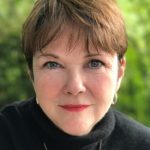 Gloria Heffernan is the author of the poetry collection, What the Gratitude List Said to the Bucket List, (New York Quarterly Books), and Exploring Poetry of Presence: A Companion Guide for Readers, Writers and Workshop Facilitators (Back Porch Productions). She has written two chapbooks: Hail to the Symptom (Moonstone Press) and Some of Our Parts, (Finishing Line Press). Her work has appeared in numerous journals including Chautauqua, Magma (UK), Stone Canoe, and Columbia Review.
Gloria Heffernan is the author of the poetry collection, What the Gratitude List Said to the Bucket List, (New York Quarterly Books), and Exploring Poetry of Presence: A Companion Guide for Readers, Writers and Workshop Facilitators (Back Porch Productions). She has written two chapbooks: Hail to the Symptom (Moonstone Press) and Some of Our Parts, (Finishing Line Press). Her work has appeared in numerous journals including Chautauqua, Magma (UK), Stone Canoe, and Columbia Review.
Jan Seagrave
Bon Mots
I scavenge through the shelves
lining the little free library
…………..like Ranger Rick raccoons
…………..atop The Book of Kitchens.
Why am I curious about what isn’t me?
Why, from lack, hope for discovery––
try again to know again what I don’t?
A widow built Rob’s Bookhouse,
this cabinet in the sidewalk strip––
used biographies and geographies,
…………..Vintage Poetry sandwiched
…………..between Backyard BBQ Basics,
the range of matter from aleph to zed.
To question must be a verb genetic––
to unwind the helix of letters and literature.
…………..Best American Plays on its side
…………..holds up Fire and Fury just arrived.
Scoffers pooh-pooh, cynics scrutinize,
Thomases doubt the totality.
I poke my nose into hardcover novels
like I tried to read my sister’s hardship.
…………..A Series of Unfortunate Events
…………..falls next to Tess of the d’Urbervilles.
I wait for secrets to bloom
presuming that reading is asking,
trusting impossibly
that I will understand.
A brass plaque is affixedz
to the green Bookhouse door,
engraved with Rob’s advice––
…………..Stay curious
…………..read often
…………..question everything.
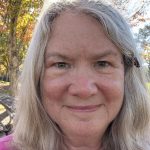 Jan Seagrave lives in Marin County, California, with two generations of kids. The youngest invents verses in the bathtub. Jan began as a PR writer, then morphed into a storyteller. At a ripe old age, she got an MLIS and became a librarian, but now has her dream job: poet! Jan’s poetry appears in journals including Panoplyzine, San Pedro River Review, and Big Windows Review; and in anthologies such as Amore: Love Poems (ed. Tucker).
Jan Seagrave lives in Marin County, California, with two generations of kids. The youngest invents verses in the bathtub. Jan began as a PR writer, then morphed into a storyteller. At a ripe old age, she got an MLIS and became a librarian, but now has her dream job: poet! Jan’s poetry appears in journals including Panoplyzine, San Pedro River Review, and Big Windows Review; and in anthologies such as Amore: Love Poems (ed. Tucker).
Keri Hakan
Thanks for Asking, Ms. Oliver
Tell me, what is it you plan to do
with your one wild and precious life?
– “The Summer Day”
I will talk to the squirrel in my maple
in clicks and sweet girl names.
When scrub jays and crows caw
I’ll open the door.
Elk will nudge me. The black bear will sniff
me out—stand at attention to greet me,
maybe to maul me.
I’ll stare in recognition:
the color changes on
bees’ wing-flutters, the slow fall
of cottonwood fluff,
the rain-weight on leaves,
the sun-slip into
my body.
Age will mark me in lines and spots,
make memories of prayers made kneeling in the grass
and in-person flirting even if we are not a match.
My porcelain skin will peel to tree bark,
and my hair will twist and branch every which way—
brown to gray.
My soul will take root, no longer
tapping for eternal spring.
The breeze will carry all the voices, the chatter and smells.
I will remain still—
become river, leaves, woods.
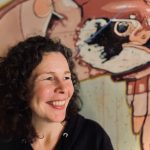 Keri Hakan was born and raised in the Midwest but considers Oregon her home. She lives, loves, and writes in Portland. Her muse calls her to the woods and rivers of Oregon often. Keri has been published in Windfall Journal, Tiny Seed Journal, Upper Left Edge, The Corvallis Advocate, and The Mindfulness Bell. She has participated with her poetry in artists’ collaboration projects with The Elizabeth Jones Art Center in Portland, Oregon.
Keri Hakan was born and raised in the Midwest but considers Oregon her home. She lives, loves, and writes in Portland. Her muse calls her to the woods and rivers of Oregon often. Keri has been published in Windfall Journal, Tiny Seed Journal, Upper Left Edge, The Corvallis Advocate, and The Mindfulness Bell. She has participated with her poetry in artists’ collaboration projects with The Elizabeth Jones Art Center in Portland, Oregon.
Liza Braude-Glidden
Worm Farming
Why should the peculiarities of human consciousness be the narrow standard by which other creatures are judged? —Gary Snyder
I’m raising the lid
of your four-foot hand-crafted box,
inhaling sweet earth, peeling back
coconut husk batting—beneath,
tangling masses reveling
in fragments of squash.
Worms!
30 seconds of light before
you burrow back into darkness.
Tubes of mostly water
with no teeth, borrowing
grit from the soil, you chew my burdens
into humus. Nothing left
of my carrot tops, only brown solids
and liquid whose biome
feeds our vegetables and then
our sinews. That’s forgiveness;
eating melon rinds and pooping out manna.
Unconditional devourers! I’ve learned
to pick you up by the handful and smile
at your brainless transfigurations. I pray
I too can be one of billions digesting
everything that must change form.
So ends my daily glimpse
at your dalliance. I’m closing your box. Tomorrow
I’ll open it and feed you things
I can’t change but you can. In a few hours,
I’ll be floating in darkness and you’ll remind me
of neurons firing, connecting,
and cleansing in deep sleep; wriggling garden
of Cosmic delights.
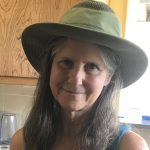 Liza Braude-Glidden is a small farmer, hiker, and contemplative who currently grows vegetables in Western Colorado. She’s always loved the majesty of mountains and now lives surrounded by them. Her poems and short prose have appeared in the anthologies Creating Circles and Ceremonies and Third Rail, and in periodicals such as Resistance Poetry, The Los Angeles Weekly, and Beyond Baroque.
Liza Braude-Glidden is a small farmer, hiker, and contemplative who currently grows vegetables in Western Colorado. She’s always loved the majesty of mountains and now lives surrounded by them. Her poems and short prose have appeared in the anthologies Creating Circles and Ceremonies and Third Rail, and in periodicals such as Resistance Poetry, The Los Angeles Weekly, and Beyond Baroque.
Penelope Scambly Schott
I Wanted to Make a Difference
I didn’t want to be raised
by a sad mother.
I didn’t want her brother
to have died in World War II.
It’s hard to change history.
Even God can’t change history.
But with one trick, I will.
Watch me.
It’s 1912. I’ve gone back in time.
Adolf Hitler has just been rejected
from the Viennese Academy of Art.
I speak perfect German.
I have a purse full of gold marks.
I track down young Adolf
and knock on his door. It opens.
Ich bin gekommen um deine Bilder zu sehen.
I have come to see your paintings.
Wie schön, I say. Verwunderlich.
I purchase several. I rent a gallery.
His paintings get better. He sells more.
His mustache gets messier.
He keeps painting.
World War II never happens.
The Jews of Europe, the Gypsies,
they all survive.
No Hiroshima. No Nagasaki.
My uncle has his 23rd birthday.
My mother smiles.
She is so pretty.
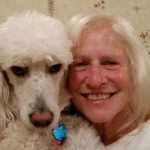 Penelope Scambly Schott is a past recipient of the Oregon Book Award for Poetry. Her most recent books are On Dufur Hill about her small (population: 635) wheat-growing town in central Oregon, and Sophia and Mister Walter Whitman, co-written with her dog. If Covid ever lets up, Penelope will go back to hosting the White Dog Poetry Salon in Portland and leading an annual workshop in Dufur.
Penelope Scambly Schott is a past recipient of the Oregon Book Award for Poetry. Her most recent books are On Dufur Hill about her small (population: 635) wheat-growing town in central Oregon, and Sophia and Mister Walter Whitman, co-written with her dog. If Covid ever lets up, Penelope will go back to hosting the White Dog Poetry Salon in Portland and leading an annual workshop in Dufur.
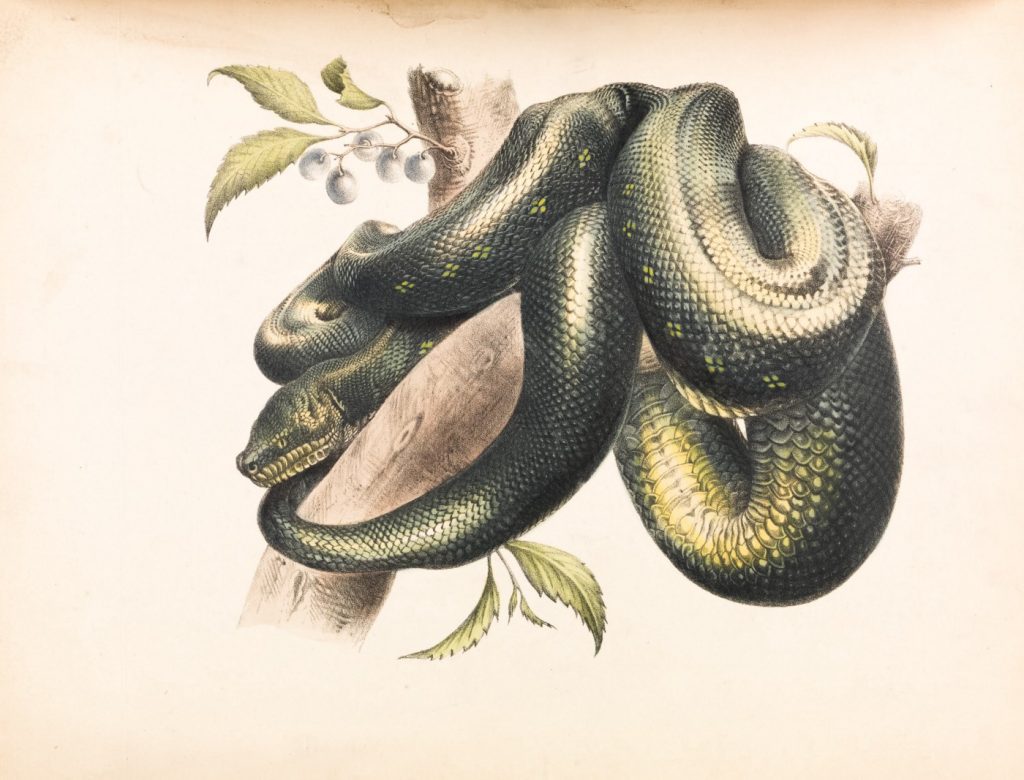 Richard Schiffman
Richard Schiffman
Tongues Untied
When God, in the Holy Koran,
teaches Adam the names for all things,
the angels foresee blood and trouble.
Which God does not deny.
River, dam, bridge, sewer,
knife, cord, lumber, enemy.
What mischief will man not make
when he can speak these words?
Allah says to the angels:
I know what you do not.
Adam, a quick study,
is soon rattling off list after list,
as if his tongue now owned the earth––
Man, woman, boss, slave.
Eve too lets loose her tongue––
Snake, fate, crave, complain.
Young Cain follows suit––
brother, club, stealth, blood.
The angels are appalled.
But the Most High commands them:
Go bow before that namer, Adam.
And the angels, being angels,
have no choice but to comply––
Raphael, Ariel, Gabriel, Chamuel,
Haniel, Harachel, Manakel, Uriel.
Adam intones, as he receives
their grudging obeisance.
The angels are unnerved
to hear their own names.
You, me, us, them,
they say for the very first time––
Crave, grave, terror, shame.
Please, God, take back
our names! they beg.
But He lets the angels swirl
in whirlpools of confusion––
loathe, love, laugh, cry,
soar, fall, fail, redeem.
Now do you understand,
the All Knowing asks––
lisp, plead, shudder, praise––
why I unleashed men’s tongues?
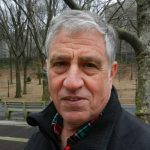 Richard Schiffman is an environmental journalist, poet, and author of two spiritual biographies. His poems have appeared in the Alaska Quarterly, the New Ohio Review, the Christian Science Monitor, The New York Times, Writer’s Almanac, This American Life in Poetry, Verse Daily and other publications. His first poetry collection What the Dust Doesn’t Know was published in 2017 by Salmon Poetry.
Richard Schiffman is an environmental journalist, poet, and author of two spiritual biographies. His poems have appeared in the Alaska Quarterly, the New Ohio Review, the Christian Science Monitor, The New York Times, Writer’s Almanac, This American Life in Poetry, Verse Daily and other publications. His first poetry collection What the Dust Doesn’t Know was published in 2017 by Salmon Poetry.

I appreciate the freedom these poets seize to speak their own truth, without feeling bound to old conventions of what poetry should look or sound like, I think this enables them to speak more directly to the heart if what matters most to them.
The poems and the writings are excellent. Not being the literary type I got feeling out of it.